Abstract
Experimental Lassa virus infection was investigated in a nonhuman primate in order to elucidate the target organs of the viral infection and the course of pathologic events. Four squirrel monkeys (Saimiri scirreus) were inoculated intramuscularly with Lassa virus and sacrificed for organ titrations and histopathology, one each day, on Days 7, 12, 14, and 28 after inoculation. The animals showed a variable clinical course, with an incubation period of 8 to 18 days. The virus was demonstrated to be virtually pantropic; however, lymph node, liver, and kidney were key early targets. After the onset of overt disease, patterns of lymphoreticulotropism, hepatotropism, nephrotropism, adrenotropism, and persistent viremia were evident. Complement-fixing antibody failed to develop after 28 days of infection. Histopathologic findings included germinal center necrosis in spleen and lymph node; myocarditis; acute arteritis; renal tubular necrosis and regeneration; hepatocytic regeneration; chronic inflammation of choroid plexus, ependyma, and meninges; and cerebral perivascular cuffing. There is a relationship between many of these lesions and certain features of other arenavirus infections. The model offers the opportunity to pursue investigations of experimental pathogenesis, transmissibility, and efficacy of immunotherapy.
Full text
PDF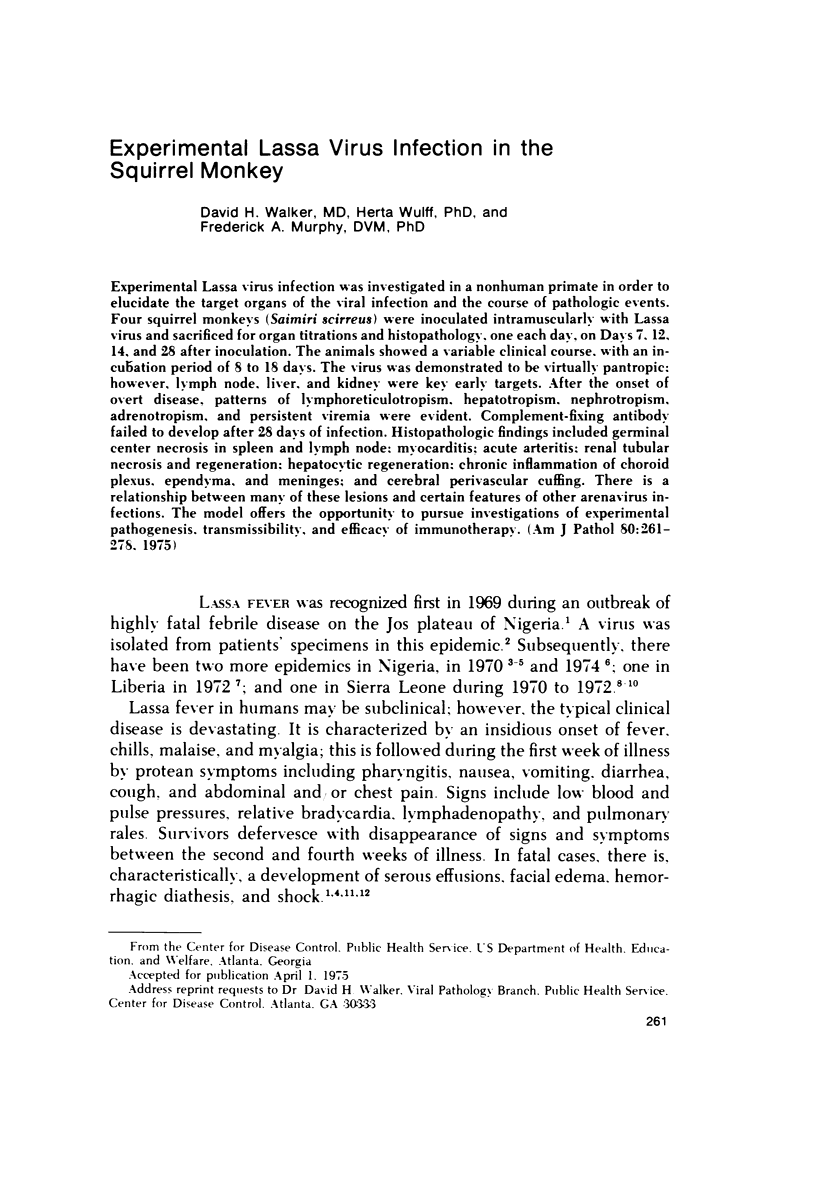
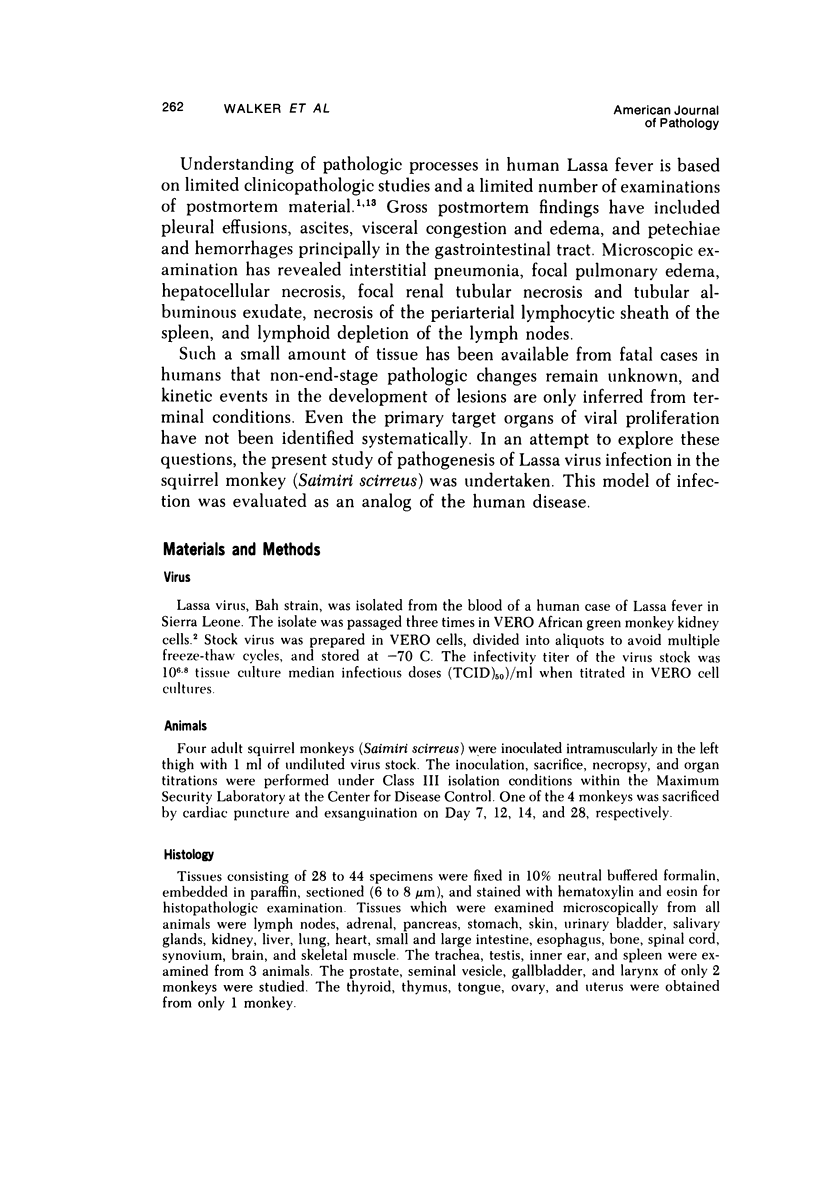
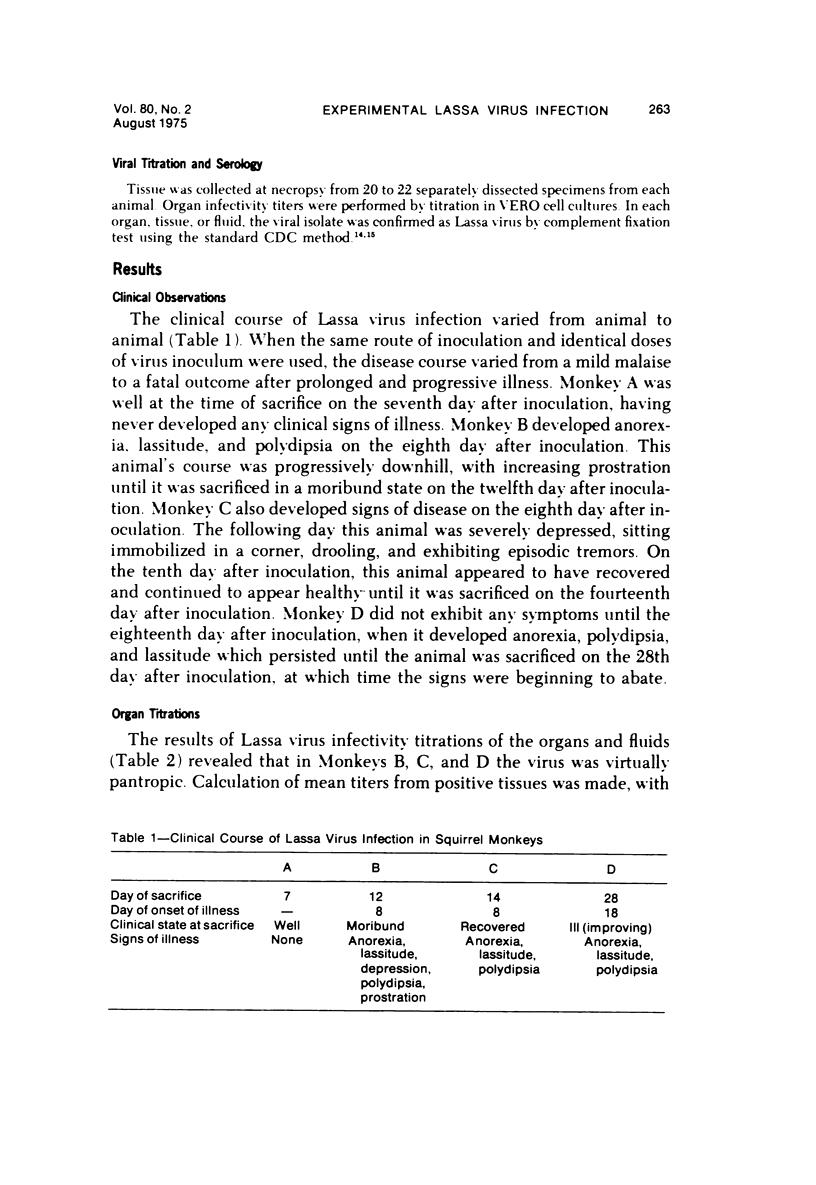
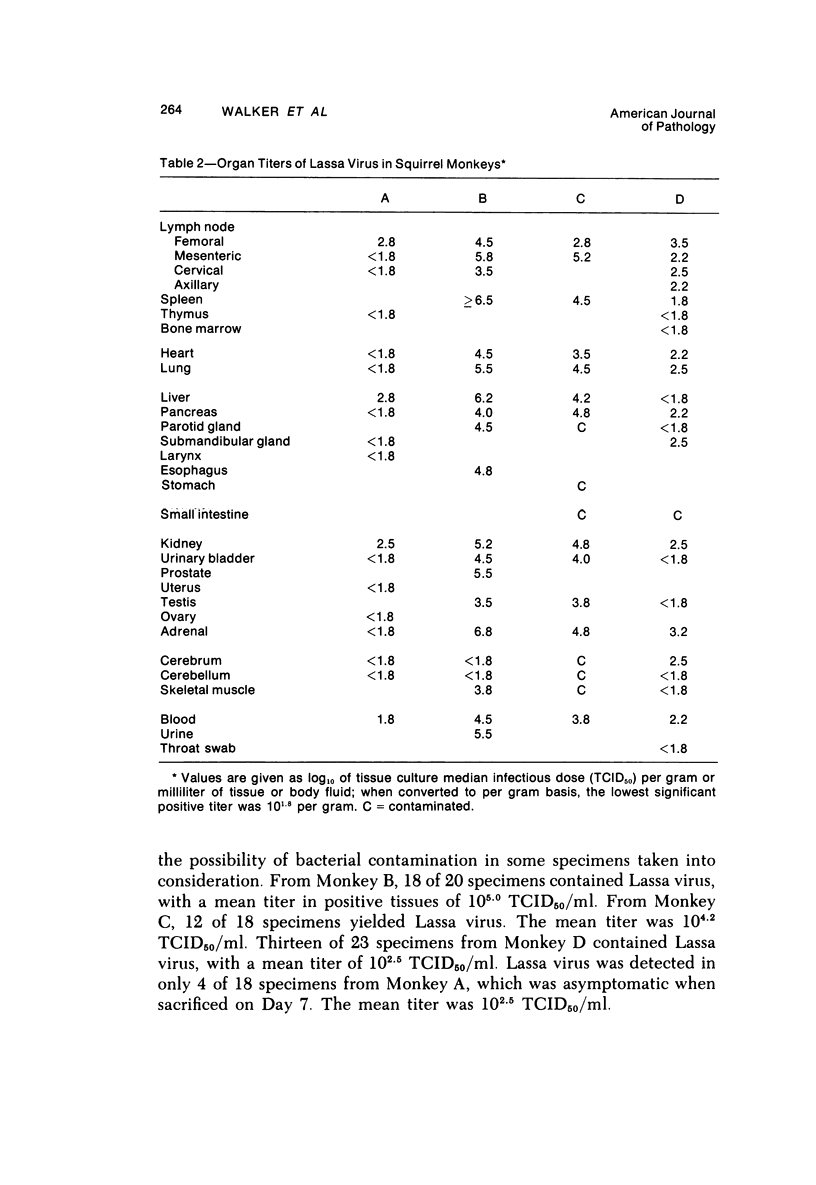
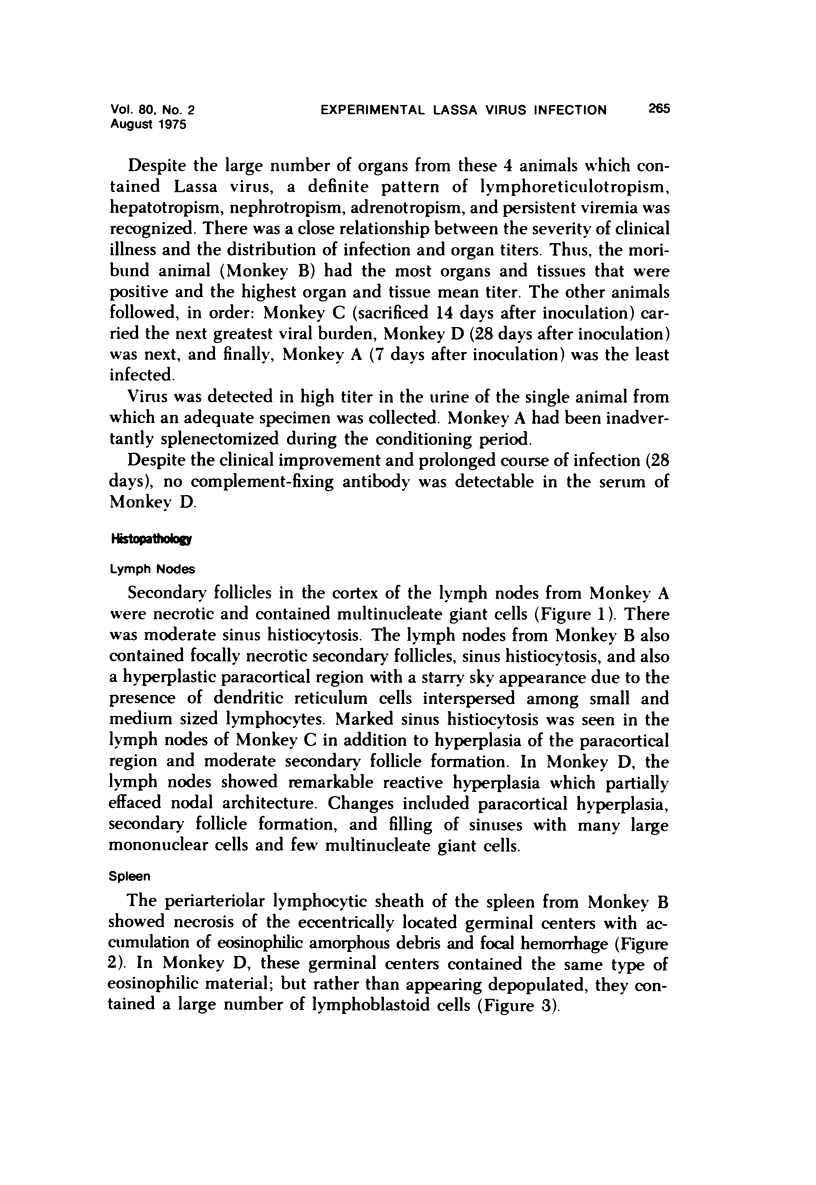
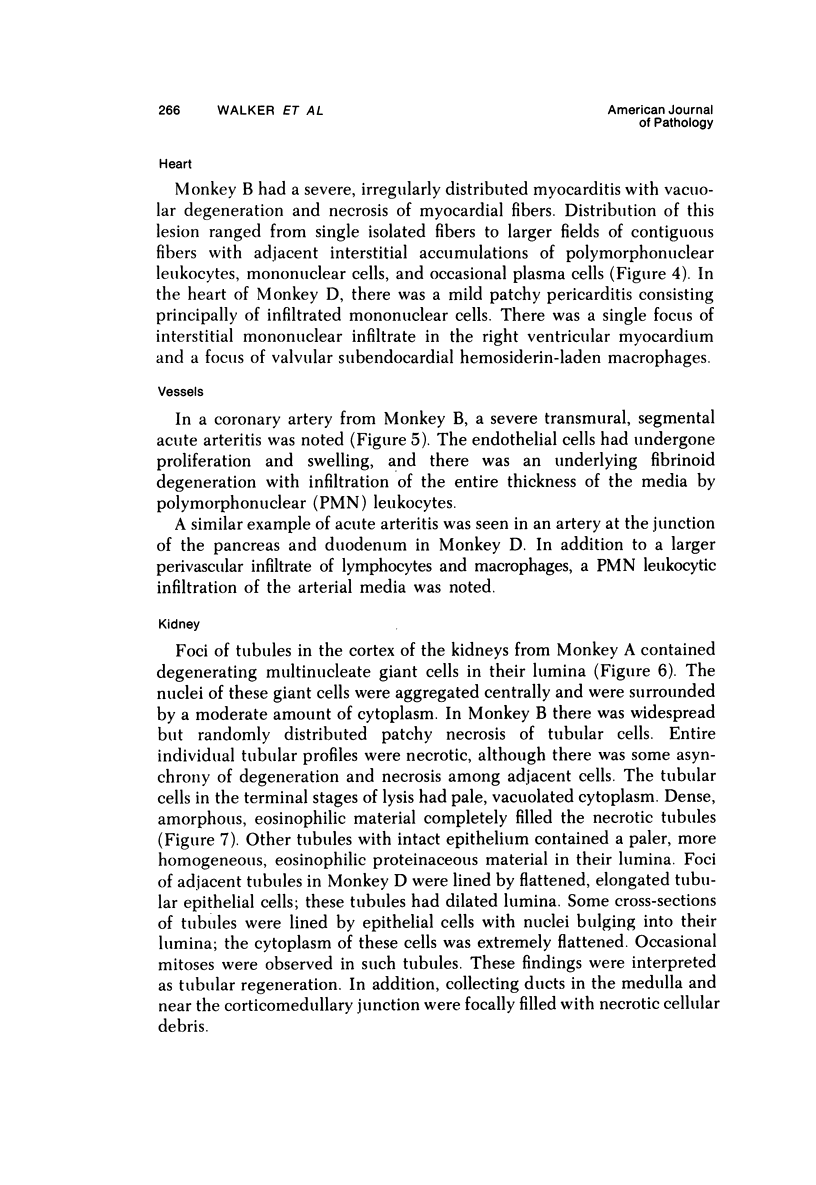
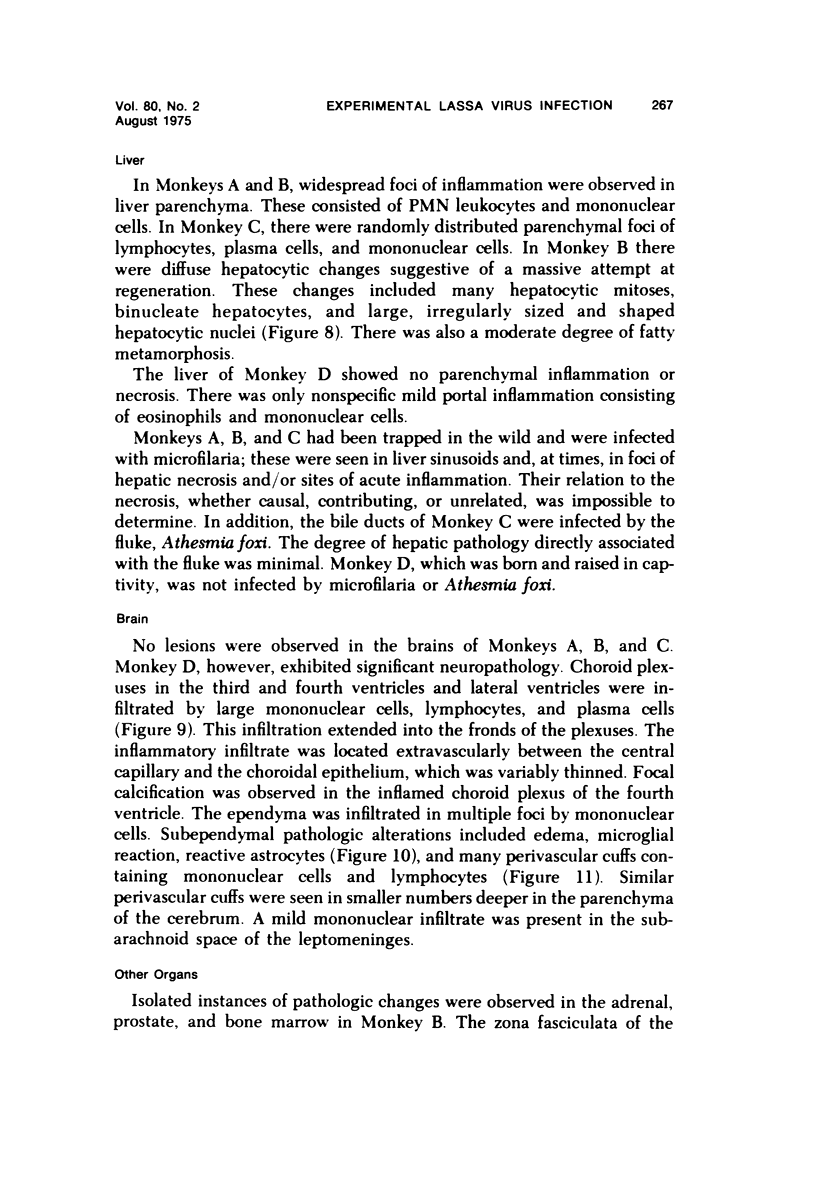
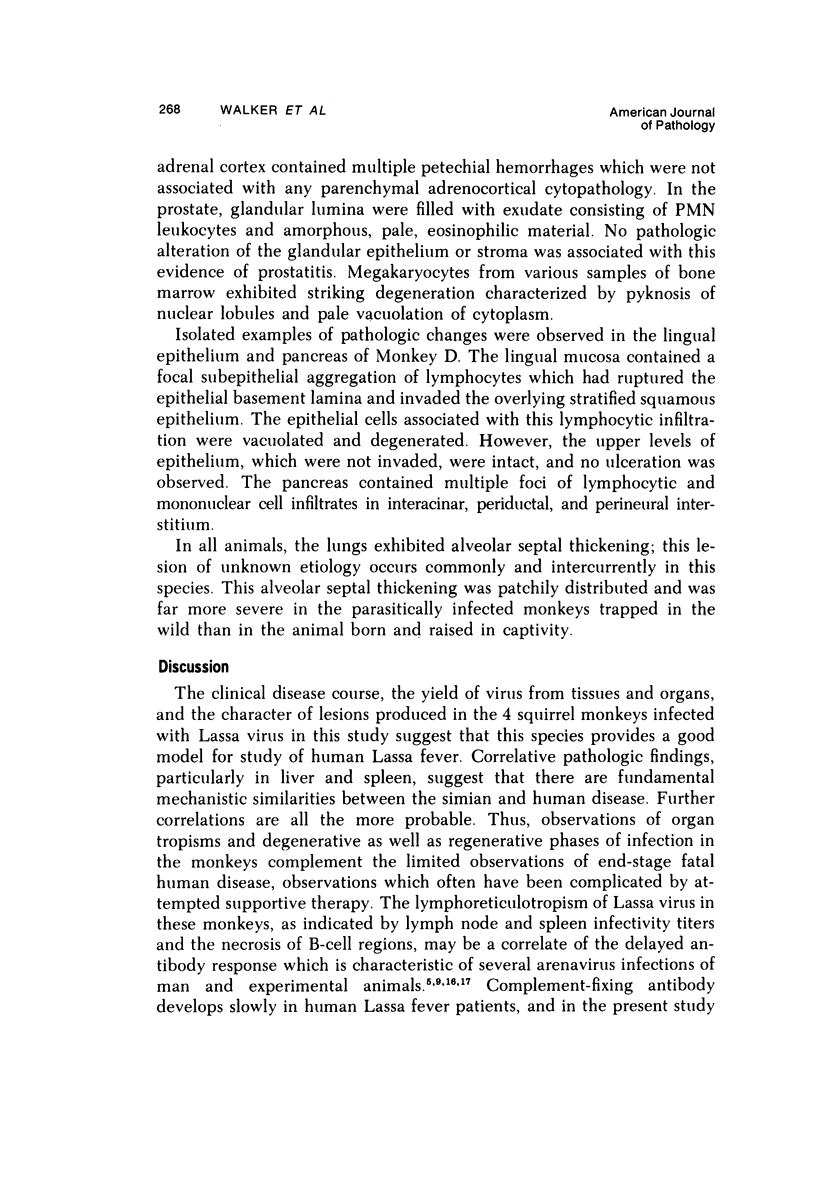
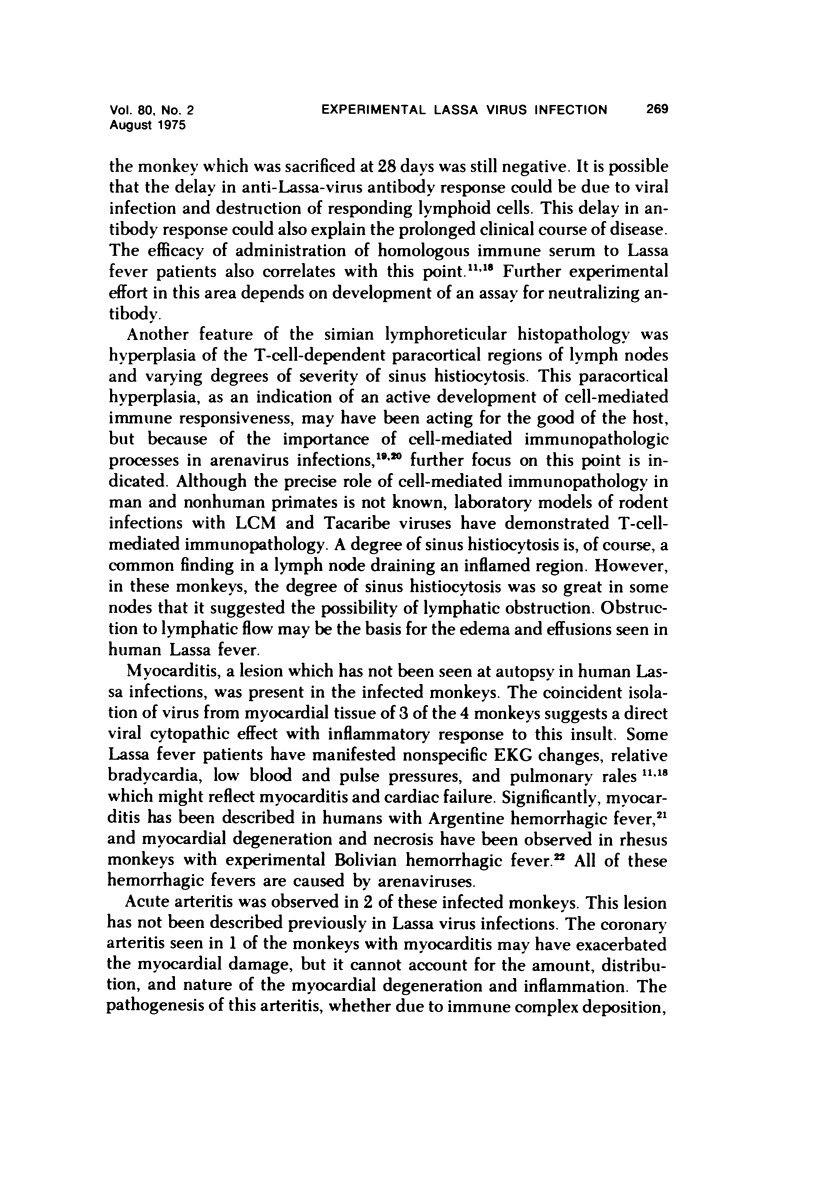
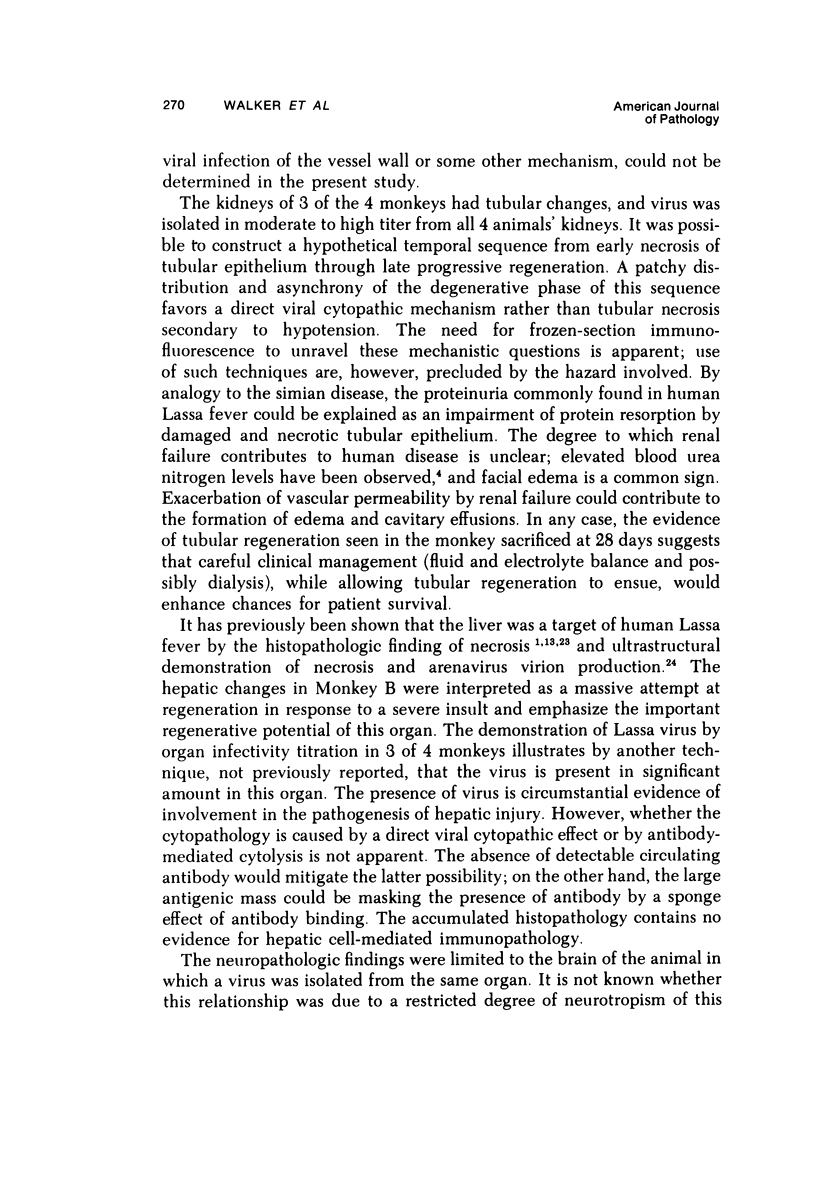
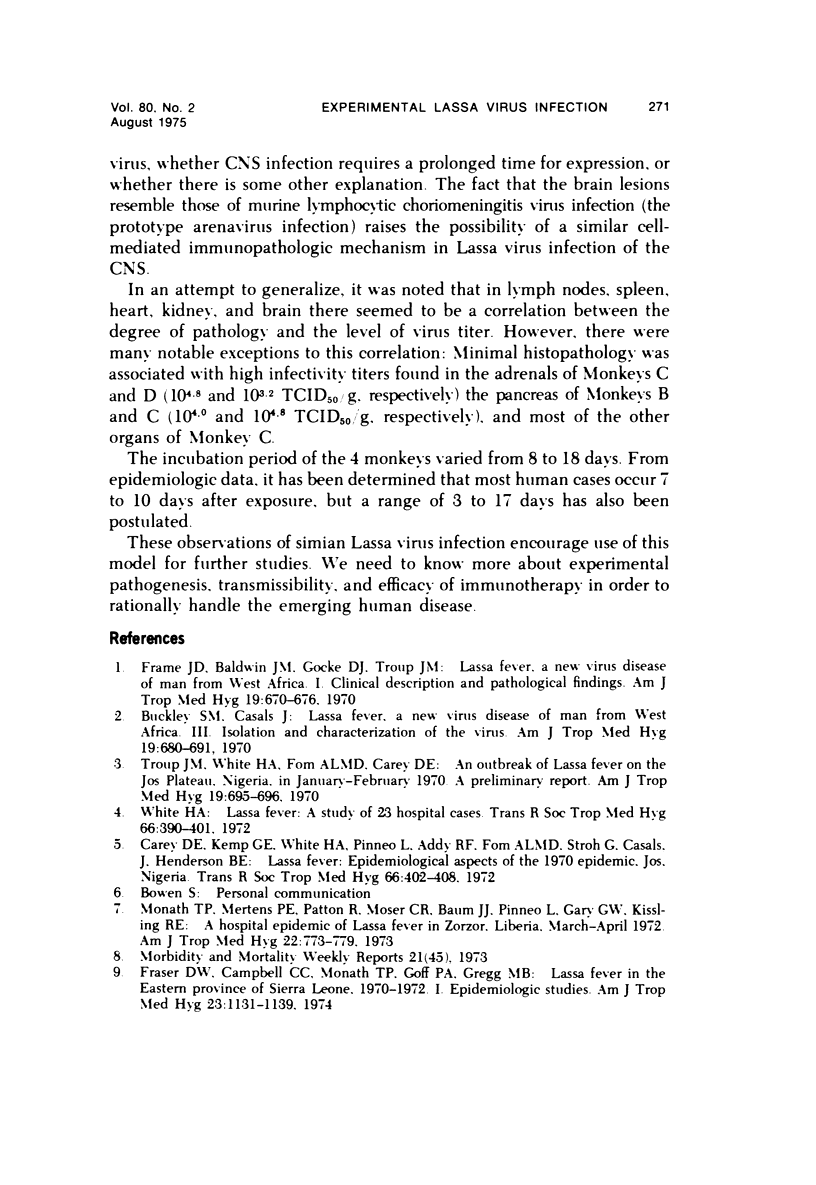
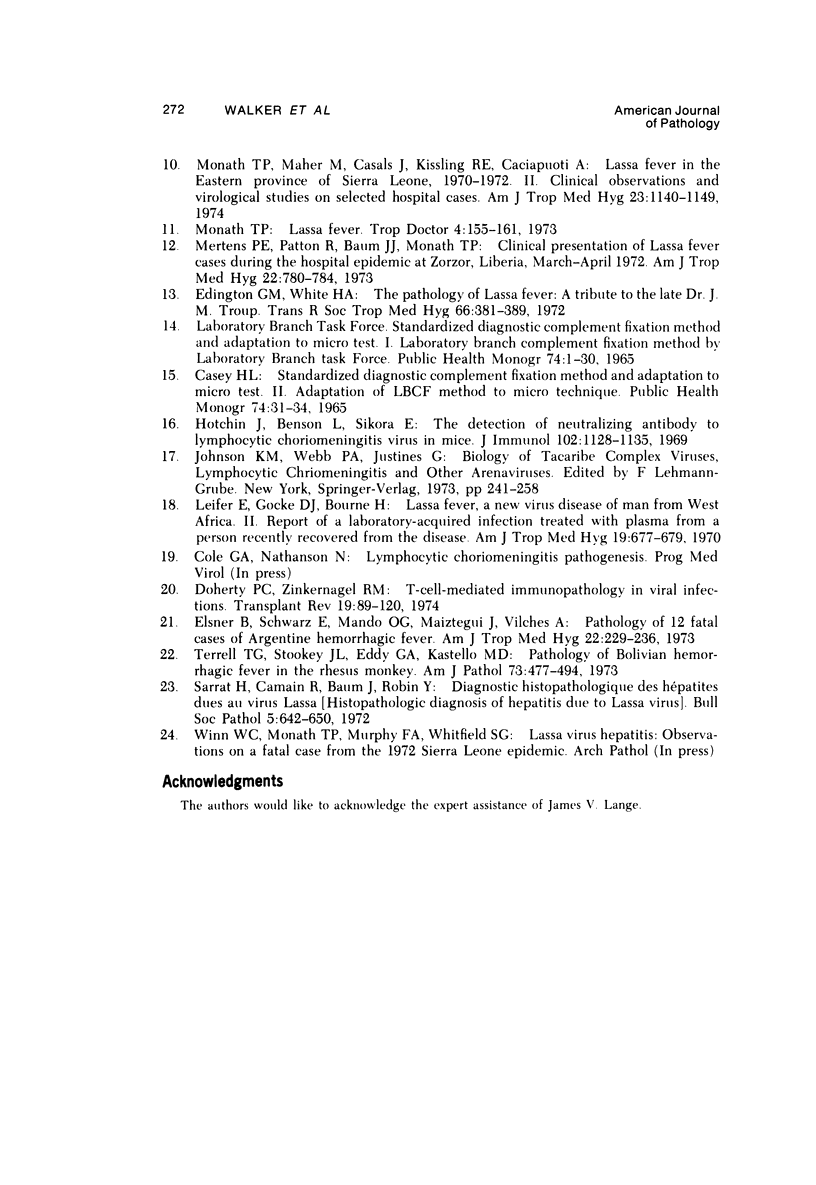
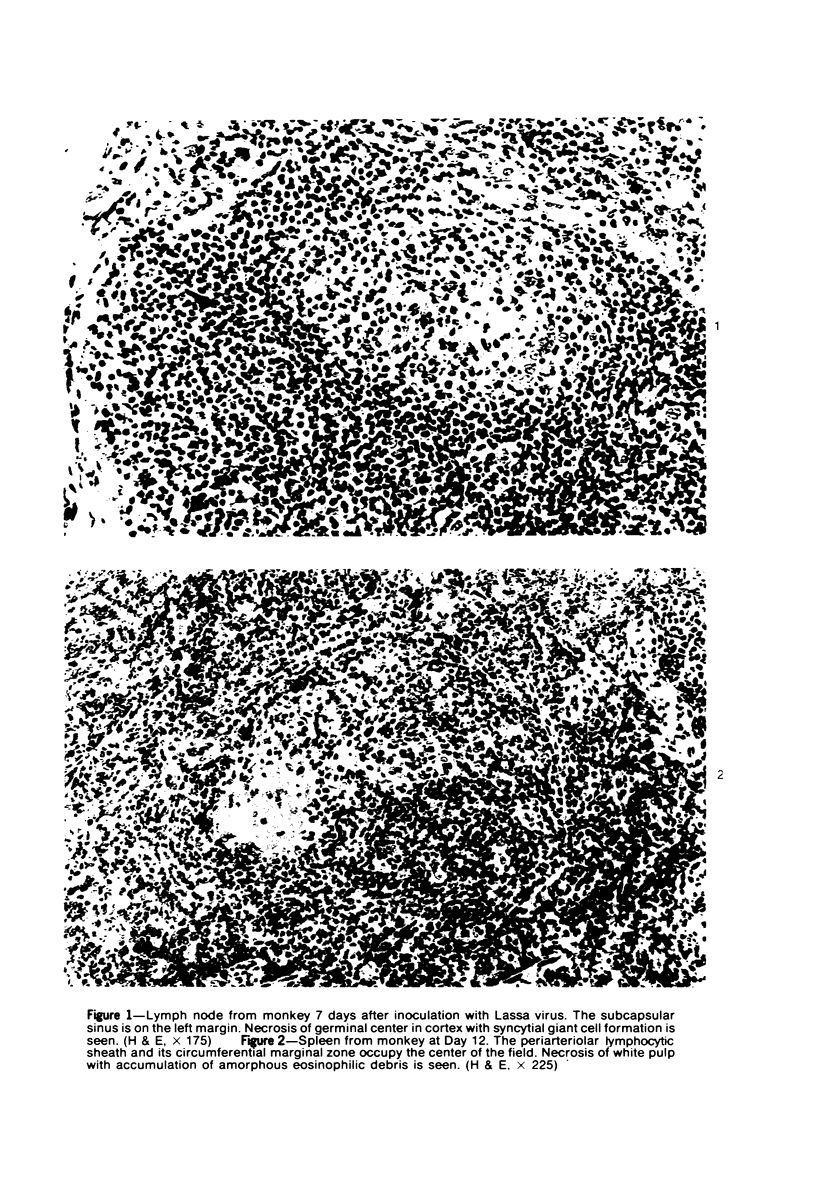
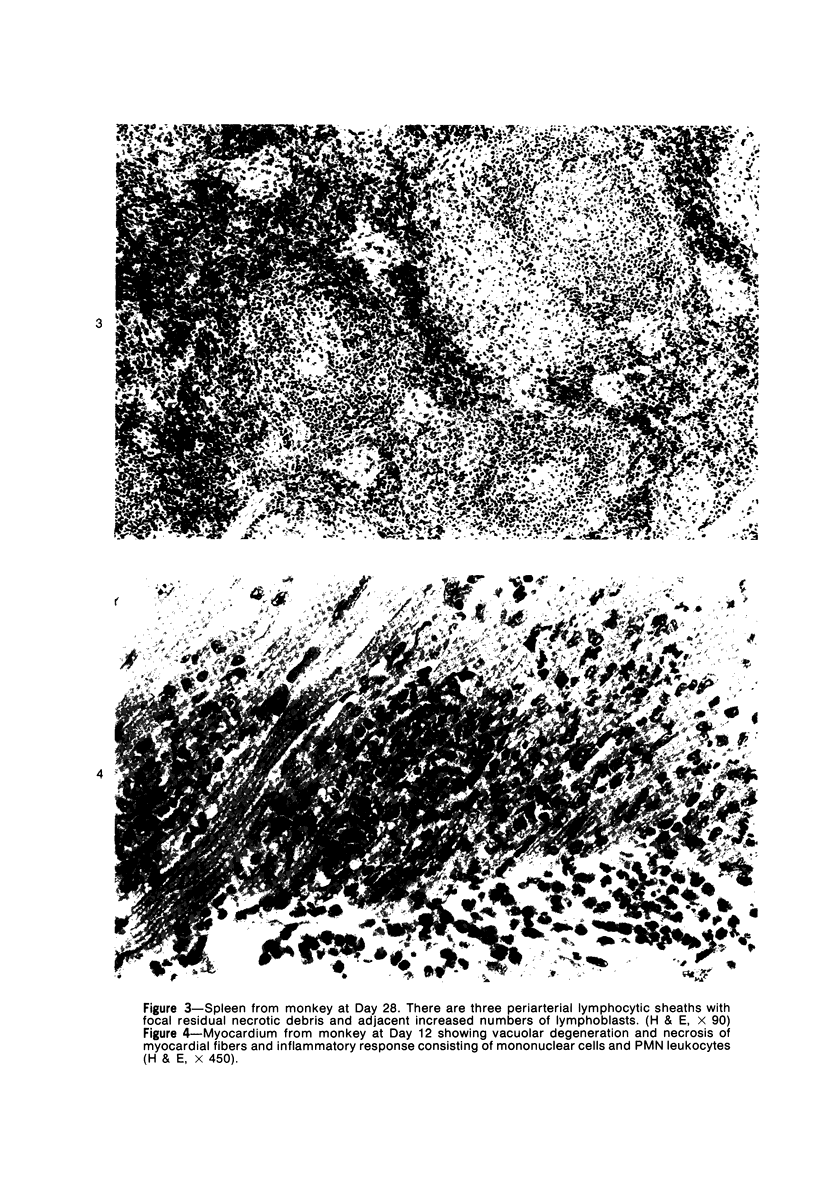
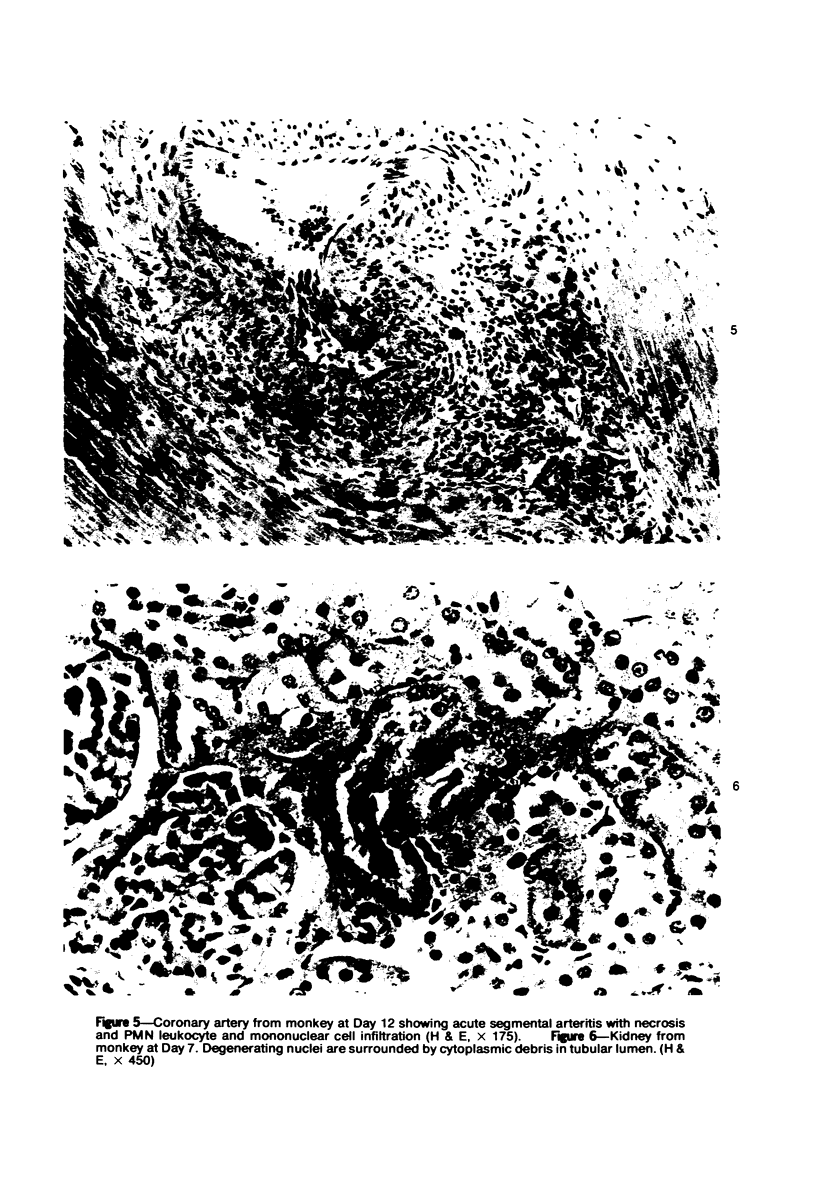
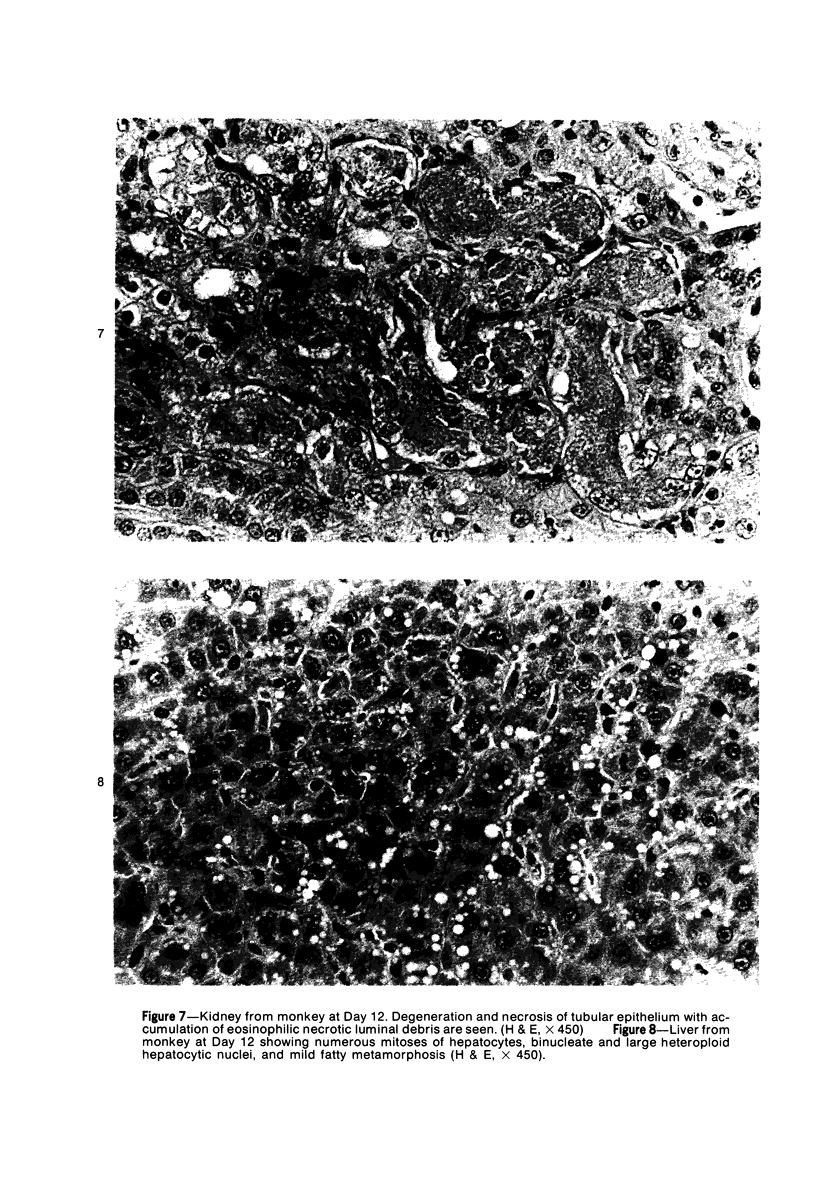
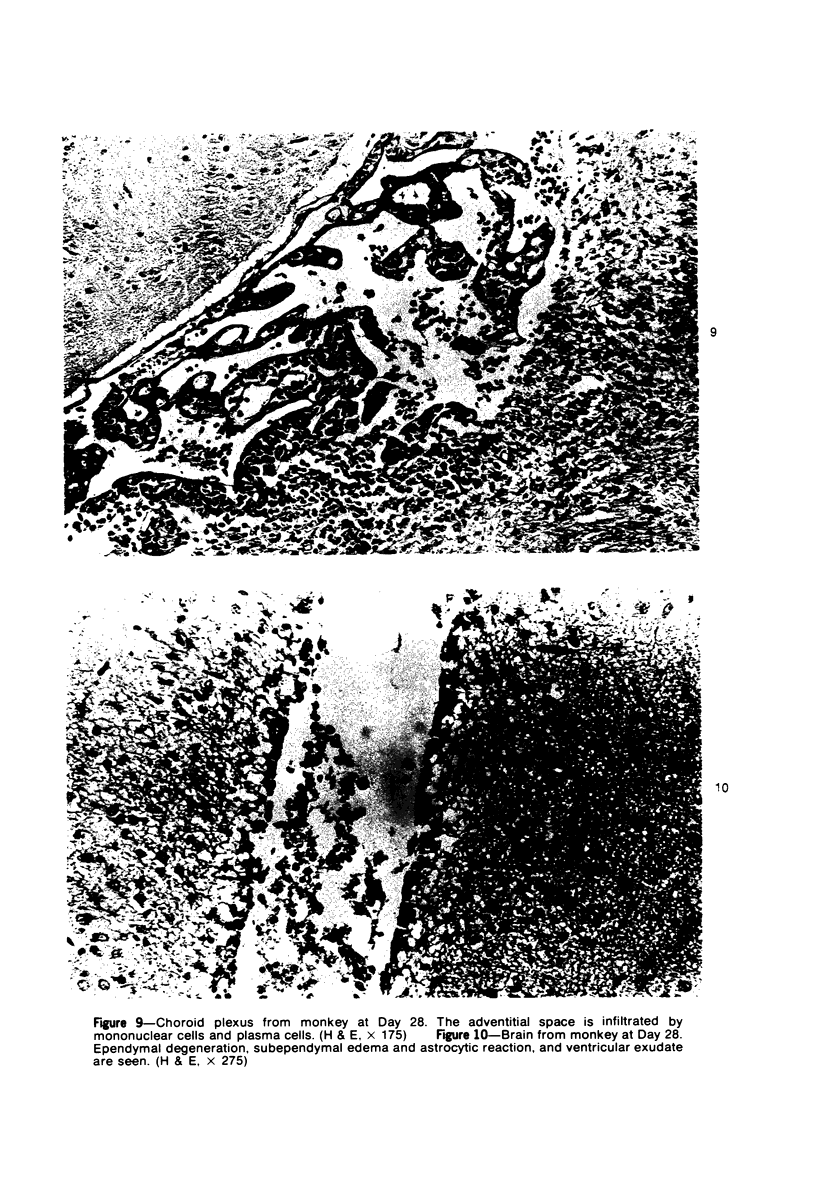
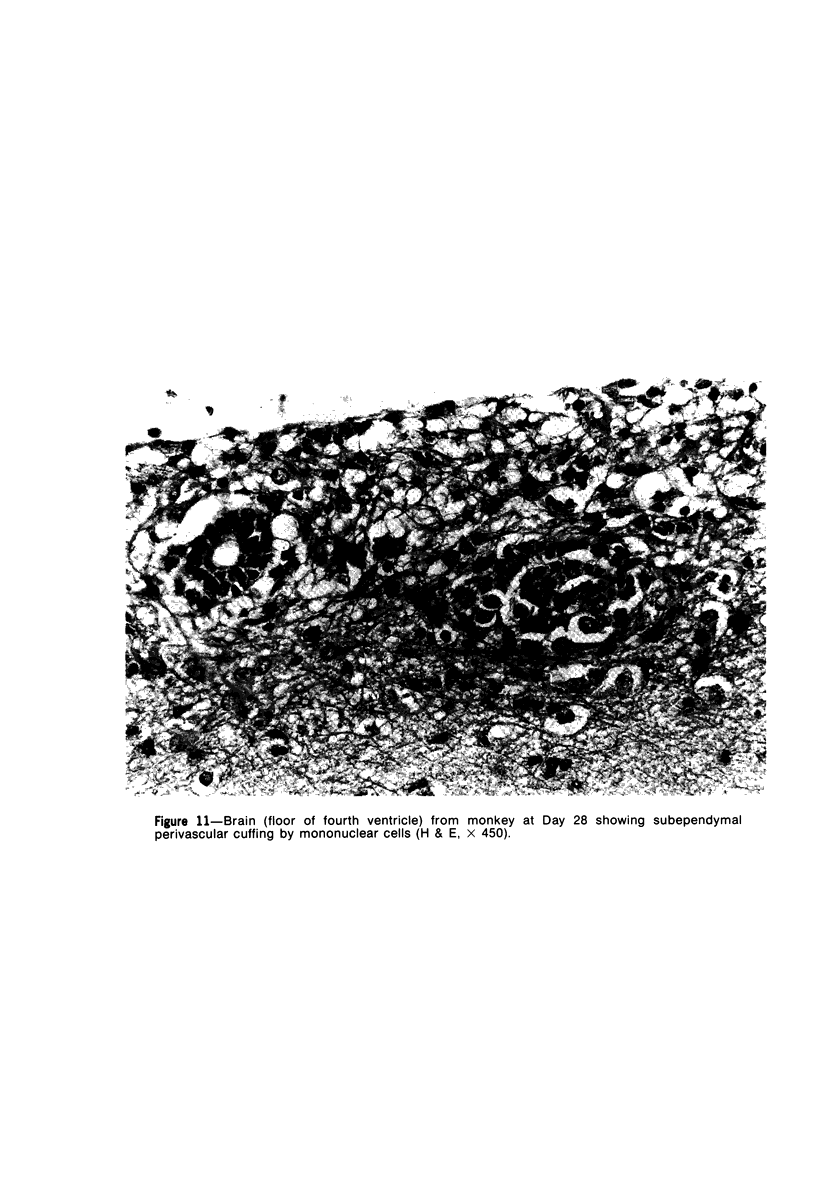
Images in this article
Selected References
These references are in PubMed. This may not be the complete list of references from this article.
- Buckley S. M., Casals J. Lassa fever, a new virus disease of man from West Africa. 3. Isolation and characterization of the virus. Am J Trop Med Hyg. 1970 Jul;19(4):680–691. doi: 10.4269/ajtmh.1970.19.680. [DOI] [PubMed] [Google Scholar]
- CASEY H. L. STANDARDIZED DIAGNOSTIC COMPLEMENT FIXATION METHOD AND ADAPTATION TO MICRO TEST. I. LABORATORY BRANCH COMPLEMENT FIXATION METHOD BY LABORATORY BRANCH TASK FORCE. II. ADAPTATION OF LBCF METHOD TO MICRO TECHNIQUE. Public Health Monogr. 1965;74:1–34. [PubMed] [Google Scholar]
- Carey D. E., Kemp G. E., White H. A., Pinneo L., Addy R. F., Fom A. L., Stroh G., Casals J., Henderson B. E. Lassa fever. Epidemiological aspects of the 1970 epidemic, Jos, Nigeria. Trans R Soc Trop Med Hyg. 1972;66(3):402–408. doi: 10.1016/0035-9203(72)90271-4. [DOI] [PubMed] [Google Scholar]
- Doherty P. C., Zinkernagel R. M. T-cell-mediated immunopathology in viral infections. Transplant Rev. 1974;19(0):89–120. doi: 10.1111/j.1600-065x.1974.tb00129.x. [DOI] [PubMed] [Google Scholar]
- Edington G. M., White H. A. The pathology of Lassa fever. Trans R Soc Trop Med Hyg. 1972;66(3):381–389. doi: 10.1016/0035-9203(72)90268-4. [DOI] [PubMed] [Google Scholar]
- Elsner B., Schwarz E., Mando O. G., Maiztegui J., Vilches A. Pathology of 12 fatal cases of Argentine hemorrhagic fever. Am J Trop Med Hyg. 1973 Mar;22(2):229–236. [PubMed] [Google Scholar]
- Frame J. D., Baldwin J. M., Jr, Gocke D. J., Troup J. M. Lassa fever, a new virus disease of man from West Africa. I. Clinical description and pathological findings. Am J Trop Med Hyg. 1970 Jul;19(4):670–676. doi: 10.4269/ajtmh.1970.19.670. [DOI] [PubMed] [Google Scholar]
- Fraser D. W., Campbell C. C., Monath T. P., Goff P. A., Gregg M. B. Lassa fever in the Eastern Province of Sierra Leone, 1970-1972. I. Epidemiologic studies. Am J Trop Med Hyg. 1974 Nov;23(6):1131–1139. doi: 10.4269/ajtmh.1974.23.1131. [DOI] [PubMed] [Google Scholar]
- Hotchin J., Benson L., Sikora E. The detection of neutralizing antibody to lymphocytic choriomeningitis virus in mice. J Immunol. 1969 May;102(5):1128–1135. [PubMed] [Google Scholar]
- Leifer E., Gocke D. J., Bourne H. Lassa fever, a new virus disease of man from West Africa. II. Report of a laboratory-acquired infection treated with plasma from a person recently recovered from the disease. Am J Trop Med Hyg. 1970 Jul;19(4):677–679. doi: 10.4269/ajtmh.1970.19.677. [DOI] [PubMed] [Google Scholar]
- Mertens P. E., Patton R., Baum J. J., Monath T. P. Clinical presentation of Lassa fever cases during the hospital epidemic at Zorzor, Liberia, March-April 1972. Am J Trop Med Hyg. 1973 Nov;22(6):780–784. doi: 10.4269/ajtmh.1973.22.780. [DOI] [PubMed] [Google Scholar]
- Monath T. P. Lassa fever. Trop Doct. 1973 Oct;3(4):155–161. doi: 10.1177/004947557300300404. [DOI] [PubMed] [Google Scholar]
- Monath T. P., Maher M., Casals J., Kissling R. E., Cacciapuoti A. Lassa fever in the Eastern Province of Sierra Leone, 1970-1972. II. Clinical observations and virological studies on selected hospital cases. Am J Trop Med Hyg. 1974 Nov;23(6):1140–1149. doi: 10.4269/ajtmh.1974.23.1140. [DOI] [PubMed] [Google Scholar]
- Monath T. P., Mertens P. E., Patton R., Moser C. R., Baum J. J., Pinneo L., Gary G. W., Kissling R. E. A hospital epidemic of Lassa fever in Zorzor, Liberia, March-April 1972. Am J Trop Med Hyg. 1973 Nov;22(6):773–779. doi: 10.4269/ajtmh.1973.22.773. [DOI] [PubMed] [Google Scholar]
- Sarrat H., Camain R., Baum J., Robin Y. Diagnostic histopathologique des hépatites dues au virus Lassa. Bull Soc Pathol Exot Filiales. 1972 Sep-Oct;65(5):642–650. [PubMed] [Google Scholar]
- Terrell T. G., Stookey J. L., Eddy G. A., Kastello M. D. Pathology of Bolivian hemorrhagic fever in the rhesus monkey. Am J Pathol. 1973 Nov;73(2):477–494. [PMC free article] [PubMed] [Google Scholar]
- Troup J. M., White H. A., Fom A. L., Carey D. E. An outbreak of Lassa fever on the Jos plateau, Nigeria, in January-February 1970. A preliminary report. Am J Trop Med Hyg. 1970 Jul;19(4):695–696. doi: 10.4269/ajtmh.1970.19.695. [DOI] [PubMed] [Google Scholar]
- White H. A. Lassa fever. A study of 23 hospital cases. Trans R Soc Trop Med Hyg. 1972;66(3):390–401. doi: 10.1016/0035-9203(72)90269-6. [DOI] [PubMed] [Google Scholar]













